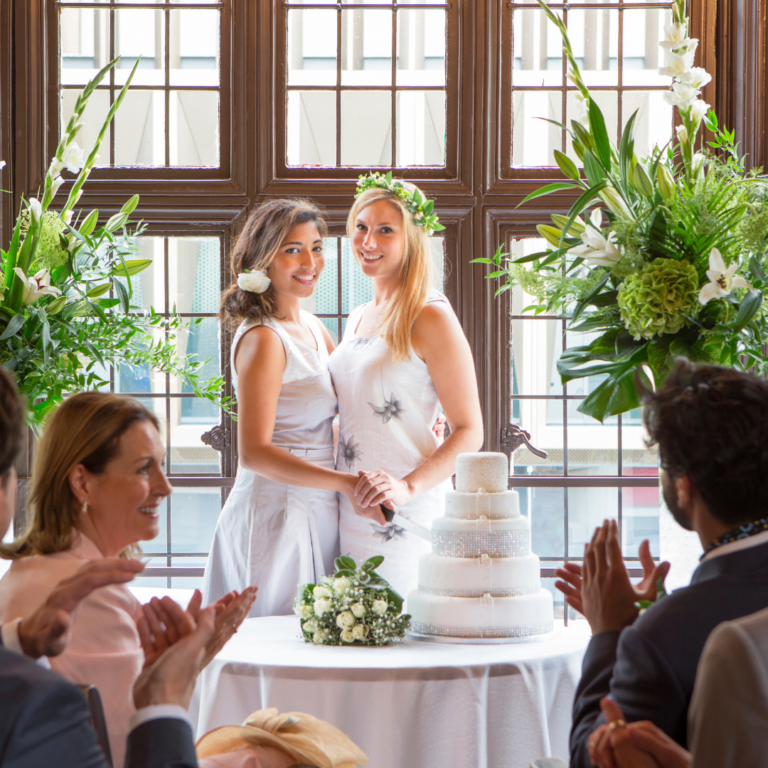
Love knows no gender, race, or religion. It is a powerful force that binds two souls together in unison. However, despite the changing times and societal progress, same-sex couples are still facing prejudice and discrimination when it comes to their right to marry. This blog post aims to break down these prejudices and shed light on why same-sex couples deserve the right to marry just like any other couple out there.
We will delve into the legal implications of denying this basic human right, explore different perspectives on this contentious issue, and why love always wins in the end! So grab a cup of coffee (or tea) and join us as we embark on an enlightening journey toward understanding marriage equality for all!
What is Marriage?
Marriage is a formal, legally recognized union of two people. Although the definition of marriage has changed throughout history and varies across cultures, the institution of marriage is universally recognized as a fundamental social institution.
Same-sex couples have long been denied the right to marry, simply because of their sexual orientation. This is an unjust form of discrimination that needs to be rectified. Same-sex couples are just as capable of forming lasting, committed relationships as opposite-sex couples, and they should be afforded the same legal rights and benefits.
Allowing same-sex couples to marry would not only be a victory for equality, but it would also strengthen families and communities. Marriage is about more than just two people; it’s about building a life together and being part of something larger than yourself. Denying same-sex couples this basic right sends a harmful message that they are somehow less worthy or deserving of love and commitment.
It’s time for our laws to catch up with our values and extend the right to marry to all loving, committed couples-regardless of gender.
History of Same-Sex Marriage
The history of same-sex marriage in the United States is one that has been filled with struggles and challenges. While there have been some advances made in recent years, such as the legalization of same-sex marriage in several states, the fight for national recognition and equality is far from over.
Same-sex couples have been fighting for the right to marry since the early 1970s. In 1971, a gay couple in Minnesota applied for a marriage license and was denied. They took their case to court, but the court ruled against them, stating that Minnesota law only allowed marriage between a man and a woman.
This ruling set a precedent that would be followed for many years to come. In 1986, the Supreme Court ruled in the landmark case Bowers v. Hardwick that laws prohibiting sodomy were constitutional. This ruling effectively criminalized homosexual relations nationwide and further marginalization those who identified as LGBT+.
It wasn’t until 2003 that any real progress was made toward legalizing same-sex marriage. In the case Lawrence v. Texas, the Supreme Court struck down sodomy laws nationwide, finally giving gays and lesbians the right to engage in intimate relations without fear of criminal prosecution. This paved the way for other advances, such as civil unions and domestic partnerships (although these are not full marriages).
Current Status of Same-Sex Marriage
As of June 2019, same-sex marriage is legal nationwide in various countries. Before this, it was only permitted in specific regions or jurisdictions within those nations. The shift toward national recognition marked a significant step forward in the global movement for LGBTQ+ rights, ensuring that same-sex couples could enjoy the same legal protections, rights, and recognition as heterosexual couples, regardless of where they lived within those countries.
Thanks to the hardworking lawyers from the lgbt bar association who might have played a role in the fight for equality — couples can enjoy the same rights and benefits that come with being married. This includes things like joint tax filing, spousal health insurance, and social security benefits. married couples also have more stability and security when it comes to things like hospital visitation and decision-making if one partner becomes incapacitated.
Despite these advances, there are still some areas where same-sex couples do not have full equality with opposite-sex couples. For example, many employers do not offer health insurance or other benefits to employees’ same-sex spouses.
And while the federal government now recognizes same-sex marriages for purposes of taxes and social security, many state and local governments do not yet recognize them for other purposes such as issuing birth certificates or granting adoptions.
The fight for full equality for all couples is ongoing, but the legalization of same-sex marriage was a major step forward. With continued advocacy and education, we can hope to see even more progress in the years to come.
Everyday Challenges Faced by Same-Sex Couples
Same-sex couples continue to face a range of day-to-day hurdles in society, even with increasing social progress. Many still encounter subtle yet persistent forms of discrimination, like being stared at in public, receiving judgmental remarks, or feeling excluded from family gatherings and community events.
Simple expressions of love, such as holding hands or showing affection in public, can sometimes trigger discomfort or even hostility from strangers. Discrimination can also arise when seeking housing or services, with some landlords or business owners treating same-sex couples unfairly.
In the workplace, inclusivity is not always guaranteed, and many feel the need to downplay or hide their relationships to avoid being judged or sidelined. A particularly distressing challenge comes in the form of mistreatment by law enforcement. There have been heartbreaking instances where same-sex couples, after reporting harassment or violence, were not taken seriously, or worse, faced discrimination, verbal abuse, or even wrongful arrest at the hands of those meant to protect them.
It is especially disheartening when members of law enforcement, who are entrusted with safeguarding all citizens, fail to uphold that duty fairly. Yet, there is a glimmer of hope through evolving legal support. Many law firms now actively take on a claim against the police misconduct, thus providing same-sex couples with the means to seek justice and hold authorities accountable.
While there is still a long journey ahead before same-sex couples are universally accepted and treated as any other couple, meaningful strides are being made each day. Attitudes are slowly shifting, communities are becoming more open-minded, people are showing greater empathy, and support for love in all its forms continues to grow.
Benefits of Marriage Equality
Marriage equality is a constitutional right that all Americans should have. Here are some of the many benefits that come with marriage equality:
1. Marriage equality strengthens families.
All families should be treated equally, and marriage equality does just that. When same-sex couples can marry, it sends a strong message to their children that they are just as valued and loved as any other family.
2. Marriage equality promotes social stability.
When same-sex couples can marry, it helps to stabilize society as a whole. It shows that we are moving towards a more tolerant and accepting society where everyone is equal.
3. Marriage equality leads to better health outcomes.
Studies have shown that married couples tend to have better health outcomes than those who are not married. This is especially true for same-sex couples who often face discrimination and exclusion from traditional forms of support such as family and friends. When these couples can finally marry, it can lead to improved mental and physical health outcomes.
4. Marriage equality boosts the economy.
Marriage is good for the economy! When more people are able to get married, it leads to more spending on weddings, honeymoons, and other related products and services. This boost in spending can help to create jobs and grow the economy overall.
The Argument in Support of Same-Sex Marriage
There are many arguments in support of same-sex marriage. One is that it is a fundamental human right. All people should be able to marry the person they love, regardless of their gender identity.
Another argument is that same-sex marriage is good for society. It promotes family values and strengthens relationships. It also provides legal and financial protections for couples and their children.
Same-sex marriage also has positive economic effects. It boosts tourism and generates revenue for businesses, governments, and economies. Same-sex marriage also creates jobs.
Overall, same-sex marriage is beneficial to individuals, families, communities, and societies. It should be legalized in all countries so that everyone can enjoy its benefits.
Argument Against Same-Sex Marriage
Though same-sex marriage is now legal in many countries around the world, there are still those who argue against it. There are a number of reasons why people may be opposed to same-sex marriage, but the most common argument is that it goes against traditional values.
Marriage has always been between a man and a woman, they argue, and allowing same-sex couples to marry would change the meaning of marriage. Marriage is an institution that is key to the stability of society, they say, and changing its definition would have far-reaching negative consequences.
Others argue that legalizing same-sex marriage would lead to even more changes in the institution of marriage. They worry that it could eventually lead to marriages between people of different species, or even between humans and animals. This, they say, would be detrimental to society as a whole.
Those who oppose same-sex marriage often do so based on religious beliefs. They believe that marriage should only be between a man and a woman because that is what God intended. Changing the definition of marriage would go against God’s will, they say, and would have serious consequences for society.
There are also practical concerns about same-sex marriage. Some people worry that it would lead to an increase in divorce rates, as well as more children being born out of wedlock. They say that this would put a strain on already overburdened social welfare systems.
Same-sex couples should be afforded the same rights as any other couple. They are humans and deserve to be treated with respect and dignity, just like everyone else. Prejudices against people for their sexual orientation can have a hugely detrimental impact on an individual’s mental health and sense of self-worth.
It is time to break down these prejudices by recognizing that same-sex couples deserve the right to marry just like everyone else. We must work together to create an equal society in which all people are valued regardless of who they choose to love or how they identify themselves.
